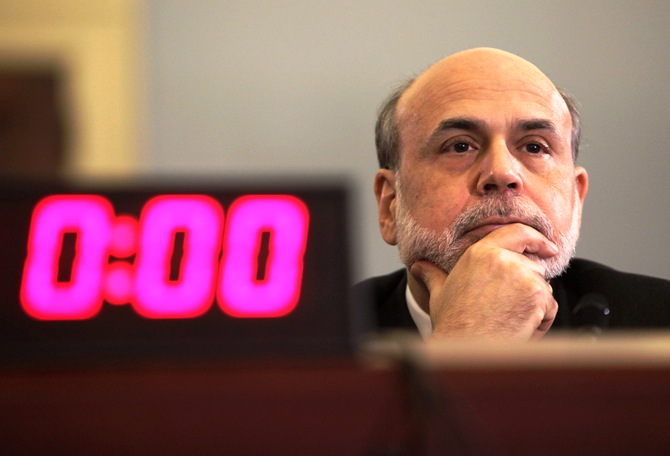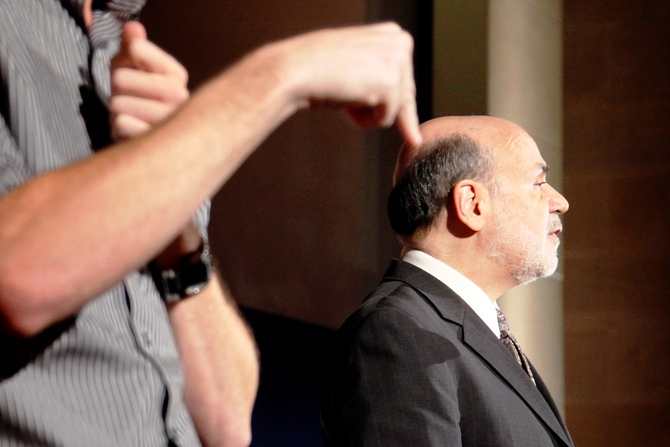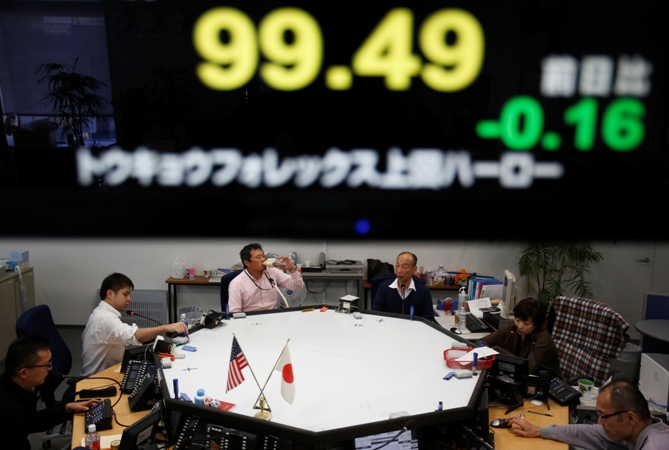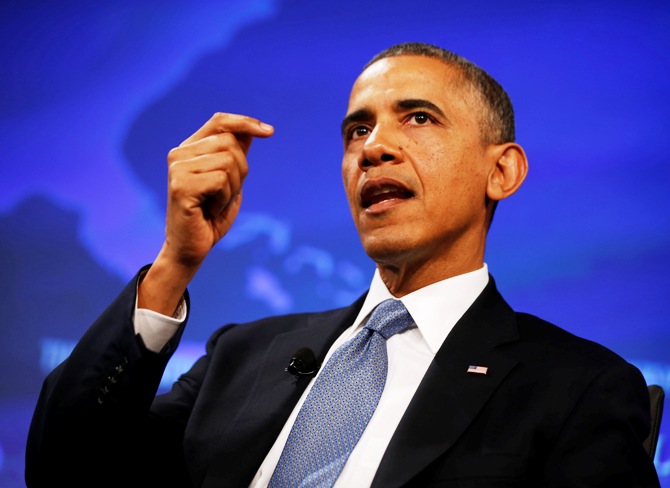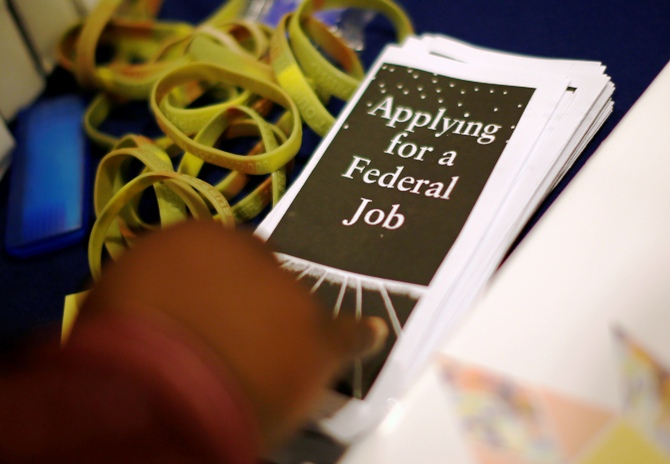 | « Back to article | Print this article |
Fed committed to easy policy for as long as needed: Bernanke
Federal Reserve Chairman Ben Bernanke said on Tuesday the Fed will maintain ultra-easy US monetary policy for as long as needed, which could mean holding interest rates near zero until ‘well after’ US unemployment falls under 6.5 per cent.
In a speech to the National Economists Club that echoed dovish comments by his nominated successor, Janet Yellen, Bernanke also said that while the economy had made significant progress, it was still far from where officials wanted it to be.
"The FOMC remains committed to maintaining highly accommodative policies for as long as they are needed," he told the club, referring to the policy-setting Federal Open Market Committee.
President Barack Obama nominated Yellen, the Fed's current vice chair, to replace Bernanke when his term ends on January 31.
Click NEXT to read further. . .
Fed committed to easy policy for as long as needed: Bernanke
The Fed has held interest rates near zero since late 2008 and quadrupled its balance sheet to $3.9 trillion through three massive rounds of bond buying.
It decided in October to maintain asset purchases at an $85 billion monthly pace. Bernanke said officials want evidence of durable job growth before scaling back buying.
"The FOMC still expects that labor market conditions will continue to improve and that inflation will move toward the 2 per cent objective over the medium term.
If these views are supported by incoming information, the FOMC will likely begin to moderate the pace of purchases," he said.
Fed officials meet next on December 17-18, although most economists don't think they will begin to scale back the bond buying until their meeting in either January or March.
Click NEXT to read further. . .
Fed committed to easy policy for as long as needed: Bernanke
FORWARD GUIDANCE
However, possibly indicating some wariness with the bond buying, Bernanke said policymakers were not quite sure of the impact on the economy of changes in the pace of purchases, or in the size of the Fed's balance sheet.
The Fed has also promised to hold rates near zero until unemployment hits 6.5 per cent, provided the outlook for inflation stays under 2.5 per cent.
But Bernanke said the Fed could be patient in waiting to start raising rates.
"The target for the federal funds rate is likely to remain near zero for a considerable time after the asset purchases end, perhaps well after the unemployment threshold is crossed."
Economists felt the distinction that the chairman drew between bond buying and its so-called forward rate guidance was telling.
"His remarks indicated a clear preference for forward guidance over asset purchases as a means to stimulate growth, and several references were made to the costs and risks of asset purchases," wrote JP Morgan economist Michael Feroli in a note.
Click NEXT to read further. . .
Fed committed to easy policy for as long as needed: Bernanke
MESSAGE RECEIVED
The Fed stunned markets in September when it decided to keep buying bonds, after Bernanke said back in June it expected to start scaling the program back later this year. Those expectations were allowed to harden over the summer.
The chairman noted this decision caused market volatility -- which many economists blame on poor communication by Bernanke himself -- but he said market expectations for future rate hikes were now better aligned with the Fed's own forward guidance on future rate hikes.
Fed fund interest rate futures currently indicate a higher than 50 per cent chance of a first rate hike in September 2015, and the move is not fully priced in until November, 2015.
Before September's Fed announcement, markets had pulled expectations for the first rate hike forward into 2014.
"Although the FOMC's decision came as a surprise to some market participants, it appears to have strengthened the credibility of the Committee's forward rate guidance," Bernanke said.
"Following the decision, longer-term rates fell and expectations of short-term rates derived from financial market prices showed, and continue to show, a pattern more consistent with the guidance."
Click NEXT to read further. . .
Fed committed to easy policy for as long as needed: Bernanke
SPEAKING AND WRITING
The Senate Banking Committee, which held a hearing for Yellen last week, will vote on her nomination on Thursday to pass it to the full Senate for consideration.
Yellen, who is seen as a dove who is less concerned about inflation than some peers, is expected to win confirmation with relative ease.
Bernanke, in his first public comments on what life after the Fed will hold for him, suggested that he might follow in the footsteps of his predecessor, Alan Greenspan, by writing and hitting the highly lucrative speakers circuit.
"I look forward to writing and speaking and having a little more time to contemplate some interesting issues," he said.

© Copyright 2025 Reuters Limited. All rights reserved. Republication or redistribution of Reuters content, including by framing or similar means, is expressly prohibited without the prior written consent of Reuters. Reuters shall not be liable for any errors or delays in the content, or for any actions taken in reliance thereon.
